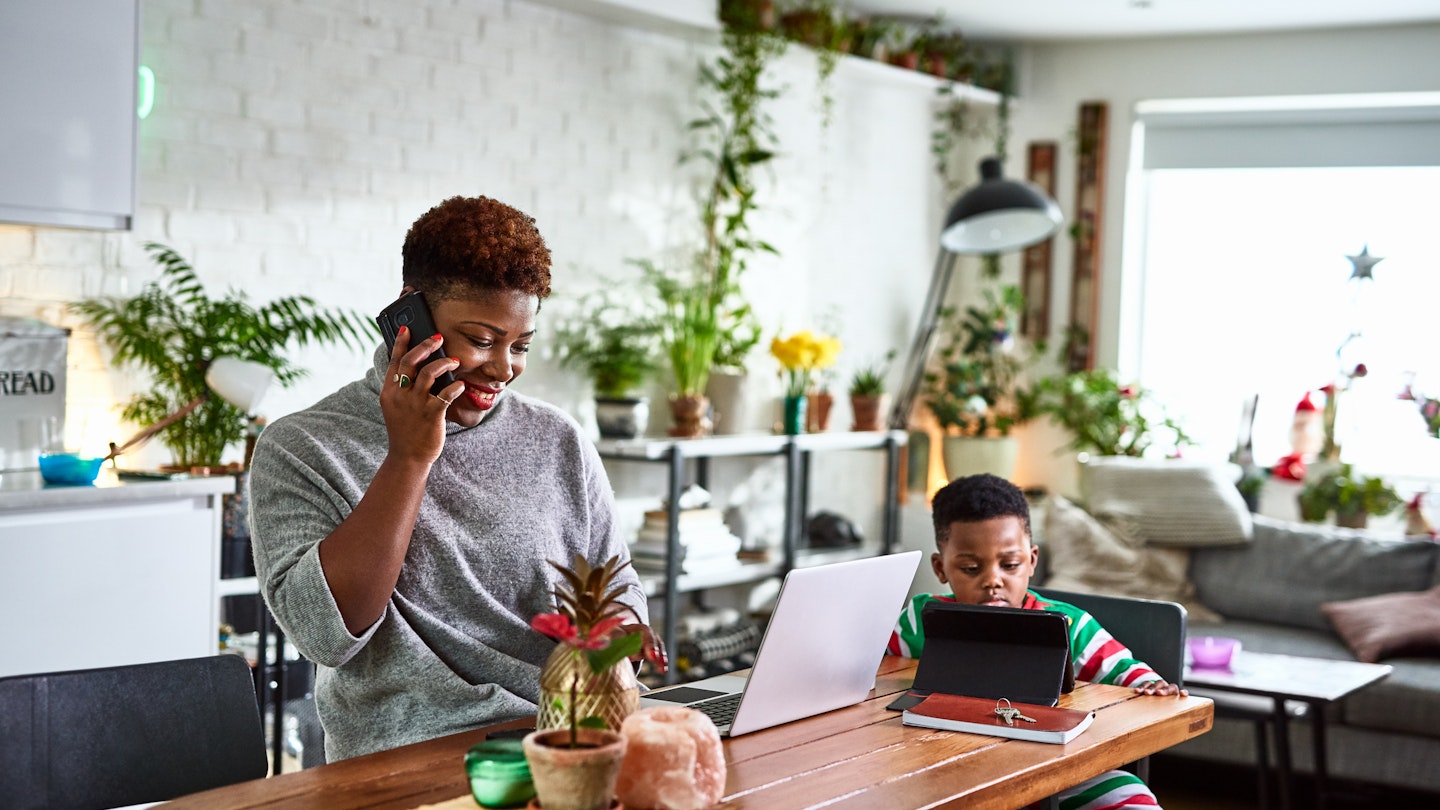Productive Remote Work Tips from Digital Nomads
Hatie Parmeter, a freelance writer and digital nomad, once had to write seven articles from the passenger seat of a Honda CRV. It wasn’t the ideal office setup, but she got it done because sometimes the freedom to travel and work from anywhere isn’t all sitting on a beach with your laptop and a cocktail.
During my own tenure as a digital nomad, I filed stories from the top bunk in a crowded hostel dorm room, did my taxes in the back of a campervan, and sent work emails from a bus in South America. Distractions and discomfort are part of the game.
“Digital nomad” describes someone who travels full-time while working online. It’s a lifestyle that offers enticing freedoms. However, it also requires the ability to constantly adapt to new environments and find ways to work in places that aren’t ideal.

In recent weeks, more people have started working remotely; however, travel has dramatically decreased. Unfortunately, this sudden global shift to remote work is tied to the reality of a global pandemic. People who can are now working from home to reduce potential exposure and the spread of the novel coronavirus. Many are discovering that working outside of the office comes with a whole new set of challenges.
Experts on working through distractions and discomforts include seasoned digital nomads, who offer sage advice on how to optimize your workday, no matter where you are:
1. Create To-Do Lists and Your Own Deadlines
Before she was forced to hunker down indefinitely in the UK, Christina Jones was traveling full-time with her horse in tow. She prioritized new experiences and trails, aiming to work only for four hours a day—though that often leads to a 6- or 7-day work week.
Without the structure of an office, work schedules can become very nebulous, which isn’t always favorable. Not everyone has the luxury of working whatever schedule feels right, but Jones advises that starting your day with a to-do list and personal time constraints will keep you focused, preventing the typical workday from stretching late into the nights or weekends.
“It’s easy to avoid distractions if you know exactly what you have to achieve when you sit in front of your laptop,” says Jones.

2. Find Ways to Reward Yourself
Danielle Boltz, host of the podcast Mudlark, has lived in two different Airstreams and spends significant time working on the road. She runs multiple businesses including vacation properties and Honeysuckle + Mud, a lifestyle and handmade goods company. While traveling between properties, she manages endless online tasks and finds that small rewards throughout the day keep her motivated to stay on track.
“I get super inspired scrolling Pinterest midday and getting ideas for future tiny home builds,” she says. “Because I work remotely, I get so motivated by exciting potential projects and new views to wake up to. It makes me work that much harder knowing something exhilarating is just around the corner.”
Boltz recommends carving out time midday for something you can look forward to. For Parmeter, that something is a yoga nidra session using the Insight Timer app. “Nidra is also known as yogic sleep,” says Parmeter. “A 20-minute practice, whether lying down or sitting, equals several hours of deep sleep. It’s the best mid-day nap ever!”

3. Pick a Workspace and Make It Yours
You probably spent time arranging your office desk to feel like your own, hanging pictures, or arranging the tools you need for optimal productivity. Do the same at home. Rather than allowing your entire space to become a workspace, it’s beneficial to set up a specific area and spend time making it just right.
Boltz mentions that the aesthetics of her workspace significantly impact her productivity. “Keep it simple, intentional, and most importantly (to me) aesthetically pleasing. When my tiny space is a cluttered garbage pit, I have zero motivation or clarity. I start my workdays by ensuring my space feels open, allowing my creativity to flow—plus, I always keep my favorite candle nearby.”
4. Upgrade Your Equipment
Mike Swigunski, founder of GlobalCareer.io, emphasizes the importance of quality work equipment, particularly computers and noise-canceling headphones. “Controlling your equipment is essential and having a top-notch laptop and a pair of headphones with a good microphone is very important,” says Swigunski. “The headphones enhance music listening and improve call quality.”
If you’ve considered asking for a computer upgrade, now may be the ideal time. Additionally, if noise-canceling headphones could enhance your productivity (as all interviewed digital nomads confirm), it’s worth ensuring you have those too.

5. Shake Out the Stress with Exercise
Parmeter recommends taking time for brief workouts throughout the day. “I have to move my body to release stress,” she states. “I incorporate five-minute yoga or push-up breaks. Walking the dogs multiple times a day helps me get moving and enjoy good weather whenever possible!”
6. Find Focus Music That Works
If the entire family is home, distractions are likely at an all-time high. The right work soundtrack, paired with quality headphones, can help drown out household noise. Conversely, for those living alone, silence can also be distracting; thus, a dependable work soundtrack is essential for everyone.
Jones recommends Brain.fm for a work soundtrack designed specifically for productivity. The creators made all soundtracks using a science-based approach focused on “eliciting strong neural phase locking,” which helps you remain focused. After trying it while writing this article, I found that it enabled me to stay on task longer than I had in weeks.
Digital nomads often enjoy coffee shops for free wifi and the ambient comfort of others working nearby. However, since coffee shops may be closed now, try Coffitivity, which recreates the sounds of a bustling café.

7. Be Honest with Your Coworkers
These are challenging times for everyone. Even if you establish a flawless work-from-home setup and implement all these tips, productivity can diminish during periods of heightened stress and anxiety, which seem to be constant right now.
While there are no guarantees, employers should be receptive and responsive when employees are honest about their work situations.
Jessica Shisler, Co-Founder and COO of The Vanlife App, has been developing resources for nomads with a fully remote team for years. She acknowledges that video calls often fall short in providing transparency about team members’ feelings.
“We can’t read nonverbal cues as well in a virtual setting,” says Shisler. “So we encourage extreme honesty and openness. We start every meeting with a mental health check-in using green/yellow/red indicators of personal and work capacity.”
If you manage a remote team, consider implementing additional check-ins, both one-on-one and as a group. (You can suggest these to your manager if you’re not in charge.)
Shisler believes that casual communication is vital too and suggests monthly digital happy hours. “These happy hours foster connection beyond work, allowing for minutes of ‘water cooler conversations’ and sparking creativity within the team.”
We’re all trying our best under challenging circumstances. There are countless methods to make working from home more comfortable and less stressful, but perhaps the most crucial advice is to be kind to yourself and to each other as we navigate these times together.




